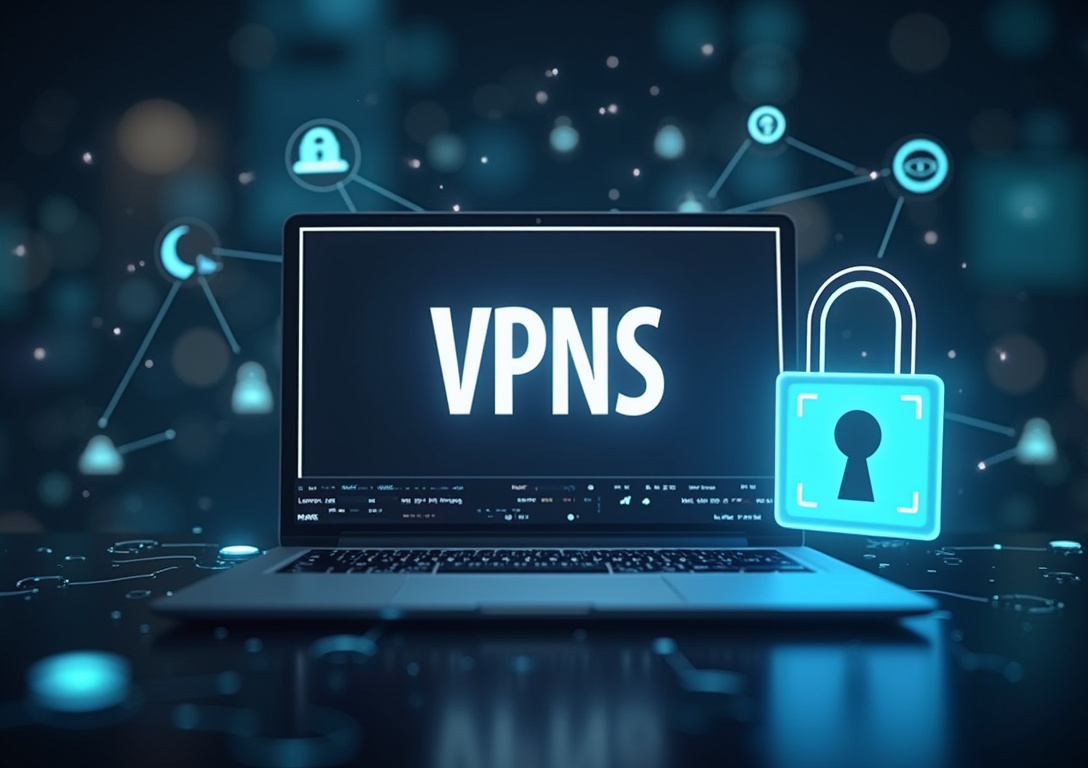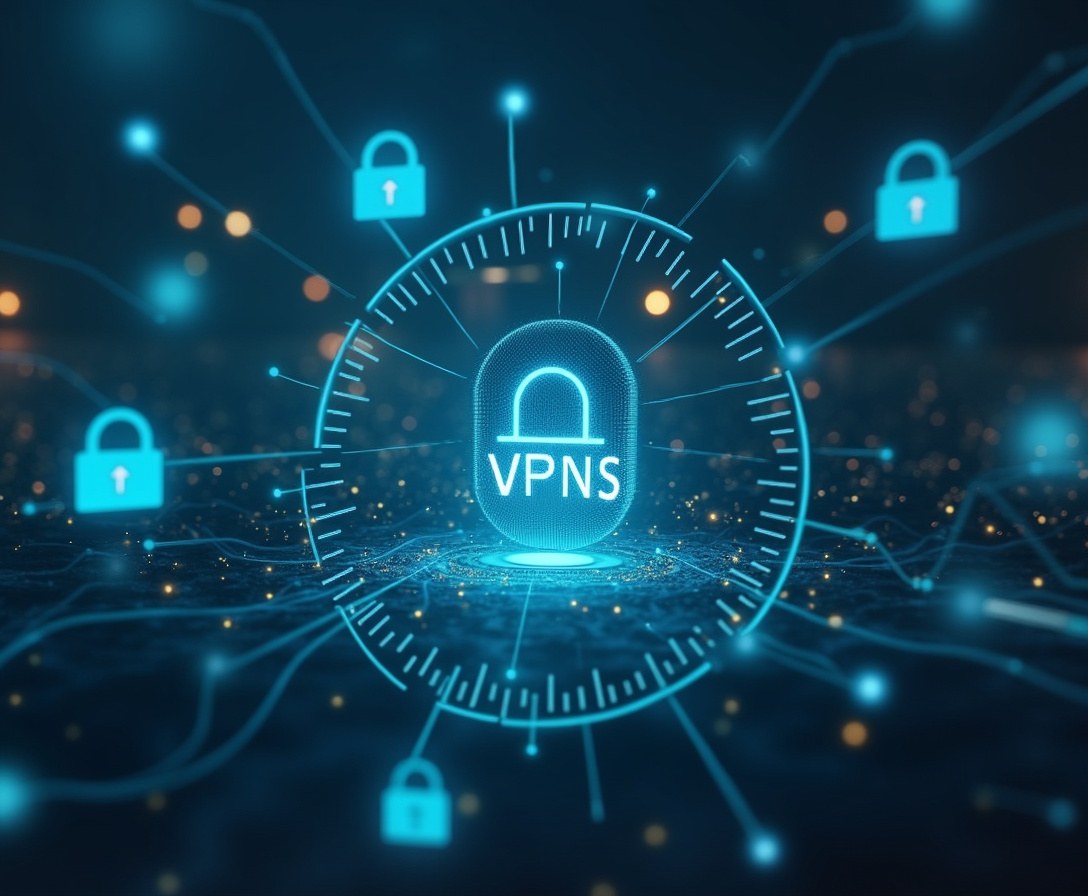VPNs for Family Businesses: Ensuring Secure Operations

Table of Contents
VPN for business
In today’s digitally driven business landscape, family businesses occupy a unique position. Rooted in tradition, often built on personal relationships, and characterized by a long-term perspective, these enterprises also face distinct challenges when it comes to cybersecurity. Unlike larger corporations with dedicated IT departments and substantial security budgets, family businesses often operate with limited resources, making them potentially vulnerable targets for cyberattacks.
This article delves into the critical role of Virtual Private Networks (VPNs) in safeguarding the operations of family businesses. A is not just a technological add-on; it's a strategic imperative, a shield against the ever-present threats that loom in the digital realm. We will explore how implementing a can significantly enhance operational security, protect sensitive data, and ensure the privacy of communications, thereby fostering a secure and trustworthy environment for growth and longevity.
The core function of a VPN lies in creating a secure, encrypted conduit for internet traffic. Imagine a secret tunnel built beneath a bustling city, allowing confidential information to travel unnoticed and unintercepted. This is precisely what a VPN achieves.
By encrypting all data transmitted through the network, a VPN renders it unreadable to prying eyes, shielding sensitive information such as financial records, customer data, and proprietary business strategies from potential hackers, competitors, or even malicious insiders. This enhanced security is particularly crucial for family businesses where the lines between personal and professional life often blur, and where trust and discretion are paramount. Beyond basic data encryption, a offers a range of benefits that directly address the specific security concerns of family-run enterprises.
One of the most significant advantages is the ability to mask the user's IP address, providing anonymity and preventing online tracking. This is especially important for family businesses that wish to protect their online reputation and prevent competitors from gathering intelligence about their activities. By concealing their true location and browsing habits, a VPN allows family businesses to operate with greater privacy and control over their online presence.
Furthermore, a enables secure remote access to company resources, allowing employees to work from anywhere in the world without compromising security. This is particularly beneficial for family businesses with multiple locations or those that rely on remote workers. With a VPN, employees can securely access sensitive documents, applications, and databases from their home offices, hotels, or even coffee shops, ensuring that business operations can continue seamlessly regardless of location.
This enhanced mobility and flexibility can significantly improve employee productivity and morale. In addition to these core benefits, a VPN can also help family businesses comply with data protection regulations such as GDPR and CCPA. These regulations mandate the implementation of appropriate security measures to protect personal data, and a VPN can be an essential tool in meeting these requirements.
By encrypting data in transit and providing secure access to company resources, a VPN helps family businesses demonstrate their commitment to data privacy and avoid costly fines and legal penalties. Implementing a is not merely a reactive measure to address existing threats; it's a proactive investment in the future of the enterprise. By taking steps to protect their data and systems, family businesses can build a culture of security that permeates every aspect of their operations.
This, in turn, can enhance trust with customers, partners, and employees, fostering a stable and supportive environment for growth and long-term success. Moreover, demonstrating a strong commitment to security can enhance the reputation of the family business, attracting new customers and partners who value data privacy and online security. In a world where data breaches are becoming increasingly common, a reputation for security can be a significant competitive advantage.
In conclusion, a is an indispensable tool for safeguarding the operations, data, and reputation of family-run enterprises. By providing a secure and encrypted connection for internet traffic, a VPN protects sensitive information from hackers, enhances employee productivity, ensures privacy, and helps comply with data protection regulations. Investing in a VPN is not just a cost; it's a strategic investment in the long-term stability and success of the family business.
Understanding VPN Basics: How They Protect Your Data
Effective implementation of a VPN solution within a family business demands careful consideration of several interconnected factors. Understanding the specific needs and priorities forms the bedrock of a successful deployment. This necessitates a thorough assessment of data sensitivity, user access requirements, security protocols, and budgetary constraints.
Begin by meticulously classifying the data handled by the business. Is it primarily customer contact information, financial records, proprietary designs, or a combination thereof? The classification dictates the level of encryption and security measures needed within the VPN.
A small retail operation dealing primarily with publicly available product information will have different security needs than a family-owned investment firm managing sensitive client portfolios. Concurrently, define who within the family business requires access to the VPN. Are we talking about a handful of key executives or the entire workforce, including remote employees and consultants?
Knowing the number of users influences the type of VPN deployment, the scalability of the chosen solution, and the licensing costs involved. Moreover, ascertain the required level of security. This is not a one-size-fits-all proposition.
A robust, military-grade encryption protocol might be overkill (and overly expensive) for a small business primarily concerned with preventing casual eavesdropping on email communications. However, for a business handling highly confidential client data or trade secrets, the strongest possible encryption is a non-negotiable requirement. Lastly, acknowledge and respect the budgetary limitations.
VPN solutions range from free, open-source options to expensive, enterprise-grade platforms with advanced features and dedicated support. Striking a balance between essential security needs and affordability is crucial for a family business with potentially tighter financial constraints. A comprehensive risk assessment is another critical pre-implementation step.
This involves identifying potential vulnerabilities and threats that could compromise the security of the family business's network and data. Common vulnerabilities include weak passwords, unpatched software, and a lack of employee awareness regarding phishing scams and other social engineering tactics. Potential threats range from external hackers and malware to disgruntled employees and unintentional data leaks.
A thorough risk assessment will help the family business prioritize security measures and allocate resources effectively. Once the assessment is complete, the next critical step is selecting the appropriate VPN protocol. The choice of protocol significantly impacts the speed, security, and compatibility of the VPN connection.
OpenVPN, a widely utilized open-source protocol, is renowned for its robust security and impressive versatility. Its open-source nature allows for community auditing and continuous improvement, making it a highly trusted option. IPSec (Internet Protocol Security) provides a secure channel for encrypting data packets over an IP network, generally used in corporate environment.
As a standard Internet protocol and a widely used VPN, it allows secure exchange of packets between two networks, but can be complex to configure initially. WireGuard, a modern VPN protocol, is gaining traction for its exceptional speed and streamlined design. Its smaller codebase and more efficient encryption algorithms result in faster connection speeds and lower resource consumption.
SSTP is a Microsoft proprietary VPN type. Finally, L2TP is another VPN option to choose. The ultimate choice depends on a confluence of factors.
If security is the paramount concern, OpenVPN or IPSec might be preferred. If speed and performance are top priorities, WireGuard could be the optimal selection. Consider compatibility with the family business's existing hardware and software infrastructure.
The chosen protocol should seamlessly integrate with existing operating systems, routers, and firewalls. Seek advice from seasoned IT professionals or VPN experts before committing to a particular protocol. They can provide valuable insights based on the specific needs and technical capabilities of the family business.
Implementing a VPN: Choosing the Right Solution for Your Business
Beyond selecting the right protocol, choosing a reputable VPN provider is paramount for the long-term security and reliability of the family business's VPN solution. The VPN market is saturated with providers, each offering varying levels of service, security features, and pricing plans. Due diligence is essential to avoid falling prey to unscrupulous providers who may compromise data privacy or security.
Start by thoroughly researching the provider's security practices. Examine their encryption protocols, logging policies, and data retention practices. A reputable provider should employ strong encryption standards, such as AES-256, and maintain a strict no-logs policy, meaning they do not store any information about users' online activities.
Understanding the provider's jurisdiction is also crucial. VPN providers are subject to the laws of the country in which they are based, which may impact data privacy and security. Opt for a provider based in a country with strong data protection laws and a history of respecting user privacy.
Review independent audits and security assessments conducted by reputable third-party organizations. These audits provide valuable insights into the provider's security infrastructure and practices. Examine the provider's track record regarding data breaches and security incidents.
A history of security lapses should raise red flags. Consider the provider's customer support offerings. A reliable provider should offer responsive and knowledgeable customer support to assist with technical issues or security concerns.
Look for a provider that offers 24/7 support via multiple channels, such as phone, email, or live chat. Read online reviews and testimonials from other users to gain insights into their experiences with the provider's service. Pay attention to comments regarding security, reliability, and customer support.
Compare pricing plans and features offered by different providers. Choose a plan that meets the specific needs and budget of the family business. Beware of providers offering overly cheap VPNs or free VPNs, as they may monetize user data or compromise security in other ways.
Once a provider is chosen, the subsequent step involves properly VPN configuration across all devices accessing the network. Normally, it means installing a proper VPN client on each device and configuring it to connect to the VPN server. Most reputable vendors provide step-by-step instructions and setup support.
As a standard security measure, it’s recommended to keep the VPN software updated with the latest security updates. Proper VPN setup includes testing to confirm security and data encryption as well as monitoring VPN functions to identify any security issues. It’s also strategic to implement a strong password policy.
End-users should use a combo of unique, complex and regularly updated passwords. Multi-factor authentication is also a viable solution aimed at adding an extra layer of security. This requires users providing two or more authentication forms.
For example, a code sent to a mobile phone. In terms of operational security, training all parties that use the VPN is highly advised. Educating them to use social engineering attacks and on how the VPN functions.
This avoids accidental data leaks. Make them aware of the implication of password sharing, what websites look dangerous or suspect, encourage users to take all security measures seriously. Ensure that everybody knows company policy regarding VPN usage.
This helps your company overall to maintain a stronger security posture. VPN is an active defense, so maintaining these practices helps ensure the family business remains protected from cyberattacks.
Best Practices: Optimizing VPN Usage for Maximum Security
Continue writing the pharagraph Nr:4 of the article structure, the pharagraph should be clear well written and with a 600 word length.
Beyond the technical aspects of VPN implementation lies the crucial realm of establishing a comprehensive VPN usage policy. This policy serves as a guiding document, outlining acceptable usage guidelines, security protocols, and responsibilities for all VPN users within the family business. A well-defined policy ensures consistent and secure VPN usage, minimizing the risk of accidental data breaches or security compromises.
The policy should clearly define who is authorized to use the VPN. Specify the roles and responsibilities of each user, including access privileges and limitations. Outline acceptable uses of the VPN.
Prohibit illegal activities, such as downloading copyrighted material or engaging in malicious hacking attempts. Clearly state whether split tunneling is permitted. Split tunneling allows users to access both the VPN-protected network and the public internet simultaneously.
While it can improve performance, it also introduces security risks. Consider the potential security implications before allowing split tunneling. Establish rules regarding password management.
Require all users to create strong, unique passwords and to change them regularly. Emphasize the importance of protecting passwords from unauthorized access. Specify the types of devices that are allowed to connect to the VPN.
Consider restricting VPN access to company-owned devices only, as personal devices may be less secure. Outline security protocols that must be followed when using the VPN. Require users to enable firewalls, install antivirus software, and keep their operating systems and applications up to date.
Detail procedures for reporting security incidents or suspected breaches. Encourage users to promptly report any unusual activity or security concerns. Specify consequences for violating the VPN usage policy.
Clearly state the penalties for non-compliance, which may include suspension of VPN access or disciplinary action. Regularly review and update the VPN usage policy to reflect changes in technology, security threats, and business needs. Communicate any updates to all VPN users.
Once the VPN is up and running, proactive monitoring and maintenance become paramount. Regular monitoring of VPN logs can help detect suspicious activity or potential security breaches. Analyze the logs for unusual connection patterns, failed login attempts, or attempts to access restricted resources.
Implement intrusion detection and prevention systems to automatically identify and block malicious traffic. Regularly test the VPN's security defenses to identify vulnerabilities and weaknesses. Conduct penetration testing to simulate real-world attacks and assess the effectiveness of security controls.
Stay informed about the latest security threats and vulnerabilities. Subscribe to security news feeds and alerts to stay abreast of emerging threats and vulnerabilities. Patch software and firmware vulnerabilities promptly.
Regularly update software and firmware to address known security vulnerabilities. Conduct regular security audits to assess the overall effectiveness of security controls and identify areas for improvement. Consider engaging a third-party security firm to conduct an independent security audit.
Train employees on ongoing security awareness. Provide regular training to employees on how to identify phishing emails, avoid social engineering scams, and protect sensitive data. By consistently monitoring and maintaining the VPN and educating employees, family businesses can ensure that the system
Data protection
Beyond the technical aspects of VPN implementation lies the crucial realm of establishing a comprehensive VPN usage policy. This policy serves as a guiding document, outlining acceptable usage guidelines, security protocols, and responsibilities for all VPN users within the family business. A well-defined policy ensures consistent and secure VPN usage, minimizing the risk of accidental data breaches or security compromises.
The policy should clearly define who is authorized to use the VPN. Specify the roles and responsibilities of each user, including access privileges and limitations. Outline acceptable uses of the VPN.
Prohibit illegal activities, such as downloading copyrighted material or engaging in malicious hacking attempts. Clearly state whether split tunneling is permitted. Split tunneling allows users to access both the VPN-protected network and the public internet simultaneously.
While it can improve performance, it also introduces security risks. Consider the potential security implications before allowing split tunneling. Establish rules regarding password management.
Require all users to create strong, unique passwords and to change them regularly. Emphasize the importance of protecting passwords from unauthorized access. Specify the types of devices that are allowed to connect to the VPN.
Consider restricting VPN access to company-owned devices only, as personal devices may be less secure. Outline security protocols that must be followed when using the VPN. Require users to enable firewalls, install antivirus software, and keep their operating systems and applications up to date.
Detail procedures for reporting security incidents or suspected breaches. Encourage users to promptly report any unusual activity or security concerns. Specify consequences for violating the VPN usage policy.
Clearly state the penalties for non-compliance, which may include suspension of VPN access or disciplinary action. Regularly review and update the VPN usage policy to reflect changes in technology, security threats, and business needs. Communicate any updates to all VPN users.
Once the VPN is up and running, proactive monitoring and maintenance become paramount. Regular monitoring of VPN logs can help detect suspicious activity or potential security breaches. Analyze the logs for unusual connection patterns, failed login attempts, or attempts to access restricted resources.
Implement intrusion detection and prevention systems to automatically identify and block malicious traffic. Regularly test the VPN's security defenses to identify vulnerabilities and weaknesses. Conduct penetration testing to simulate real-world attacks and assess the effectiveness of security controls.
Stay informed about the latest security threats and vulnerabilities. Subscribe to security news feeds and alerts to stay abreast of emerging threats and vulnerabilities. Patch software and firmware vulnerabilities promptly.
Regularly update software and firmware to address known security vulnerabilities. Conduct regular security audits to assess the overall effectiveness of security controls and identify areas for improvement. Consider engaging a third-party security firm to conduct an independent security audit.
Train employees on ongoing security awareness. Provide regular training to employees on how to identify phishing emails, avoid social engineering scams, and protect sensitive data. By consistently monitoring and maintaining the VPN and educating employees, family businesses can ensure that the system remains secure and effective over time.
and employee should be central points. The policy of using a VPN should explicitly mention which information is being monitored, when and why. It should be transparent to keep a good relation to the family business members.
The VPN should be regarded as a tool not for spying on people, but ensuring communications are safe outside and inside company premises. A section regarding dealing with regulatory compliance, standards, and keeping adherence to laws is welcome and important.
Finally, write a conclusion of article in the pharagraph Nr:5, the pharagraph should be clear well written and with a 600 word length.
Stay Updated
Get the latest VPN news, tips, and exclusive deals to your inbox.




